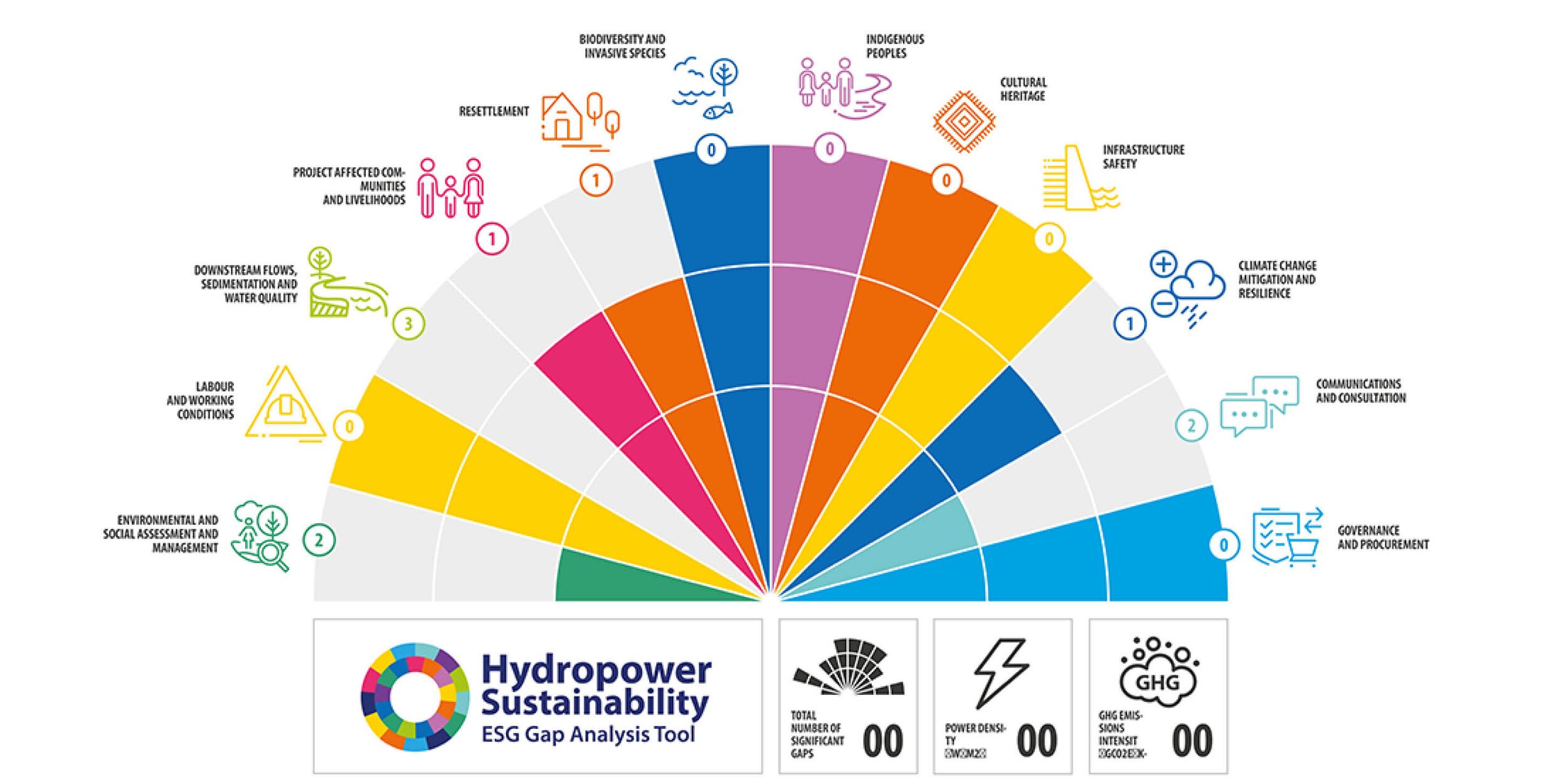IHA launches $1m assessment fund for sustainable hydropower projects
First call for proposals announced with April 2020 application deadline
A new sustainability fund launched today will aid hydropower project developers and operators in Africa, Asia, Europe and the Americas to benchmark and raise their social and environmental performance.
The Hydropower Sustainability ESG Assessment Fund will award a total of 1 million Swiss Francs (USD 1.02m) to 40 or more hydropower projects between 2020 and 2024. The initiative is managed by the International Hydropower Association’s sustainability division and funded by Switzerland’s State Secretariat for Economic Affairs (SECO).
Successful recipients will receive a grant to part-finance the cost of commissioning an independent project assessment using the Hydropower Sustainability ESG Gap Analysis Tool (HESG), a tool based on the Hydropower Sustainability Assessment Protocol and governed by a multi-stakeholder coalition of NGOs, governments, banks and multilateral institutions.
The tool enables project proponents and operators to demonstrate that they are meeting international good practice standards across 12 assessment areas including biodiversity, water quality, climate mitigation and resilience, infrastructure safety, labour conditions, indigenous peoples, resettlement, communications and consultation.
The grant will co-finance independent assessors, who are accredited by IHA and a governance council, to carry out an assessment using the HESG gap analysis tool. This involves a site visit and interviews with stakeholders, and produces a concluding report and gap management plan.
Projects under preparation and development, as well as those already in operation, are all eligible for the grant. Applicants will need to demonstrate a strong track record or commitment to sustainability and show that their project aligns with national or regional development policies.
Joao Costa, Senior Sustainability Specialist at IHA, said: “This initiative will encourage renewable energy proponents to draw upon international good practice when planning and implementing hydropower projects. Commissioning a HESG assessment helps to guide developers and operators to address any gaps in environmental and social performance. Going through this process will ultimately demonstrate a project’s sustainability and help unlock green finance.”
Daniel Menebhi, SECO Program Manager, said: “Recognising the important role sustainable hydropower has to play in addressing climate change and enabling economic development, Switzerland supports the Hydropower Sustainability Assessment Protocol and its derivatives, including the HESG gap analysis tool which is the subject of this call.
“Switzerland now funds an extensive capacity development programme in selected countries for Swiss economic development cooperation and we are pleased to co-finance HESG assessments for at least 40 promising hydropower projects over the next four years.”
The first tranche of funding of CHF 250,000 in 2020 will be made available for eligible projects in the following countries: Albania, Bosnia-Herzegovina, Colombia, Egypt, Ghana, Indonesia, Kosovo, Kyrgyz Republic, North Macedonia, Peru, Serbia, South Africa, Tajikistan, Tunisia, Ukraine, Uzbekistan and Vietnam. Project proposals will be accepted up until 19 April 2020.
IHA is the management body for the Hydropower Sustainability Assessment Council, which develops and governs the Hydropower Sustainability Tools, including a set of good practice guidelines, an assessment protocol and a gap analysis tool. The council includes representatives of social, community and environmental organisations, governments, commercial and development banks and the hydropower sector. IHA is responsible for overseeing tools training and accreditation.
Learn about the Hydropower Sustainability ESG Gap Analysis Tool and how to apply to the fund: hydropower.org/esg-tool.
Find out more: www.hydrosustainability.org


